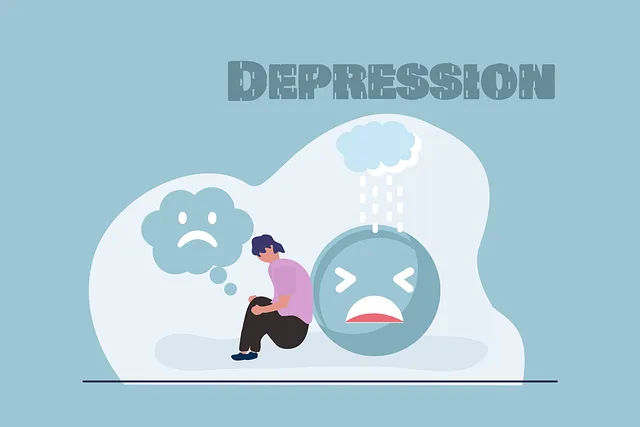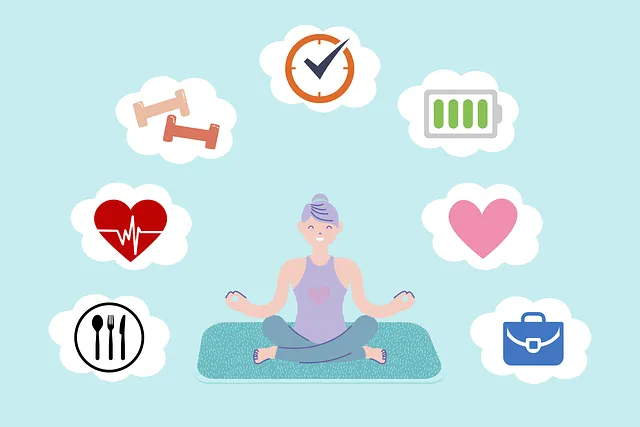Boulder Kaiser mental health programs recognize the vital link between social skills and mental wellness. By offering tailored services, evidence-based training, and group therapy, they empower individuals with tools for self-awareness, communication, and emotional regulation. This holistic approach fosters inclusive environments, improves mood management, and enhances overall well-being for those navigating mental health conditions in Boulder.
Social skills training plays a pivotal role in managing mental health conditions, offering a path to improved well-being. This comprehensive guide explores the intricate link between social interactions and mental health, highlighting challenges faced by those with such conditions. We delve into the innovative Boulder Kaiser mental health programs known for their evidence-based approach, providing strategies to enhance social skills. Additionally, we examine group therapy’s power and the value of support networks in fostering recovery.
- Understanding the Link Between Social Skills and Mental Health
- Identifying Challenges in Social Interaction for Individuals with Mental Health Conditions
- Boulder Kaiser Mental Health Programs: An Overview
- Evidence-Based Strategies for Enhancing Social Skills
- Benefits of Group Therapy and Support Networks for Recovery
Understanding the Link Between Social Skills and Mental Health

In the realm of mental health care, recognizing and addressing social skills deficiencies is a game-changer, particularly in bustling communities like Boulder where diverse populations seek support through programs like those offered by Kaiser. The link between social skills and mental health is intricate; individuals struggling with anxiety, depression, or trauma often face challenges interacting with others, which can exacerbate their conditions. Effective mental healthcare provider cultural competency training equips professionals to understand these nuances, fostering a supportive environment that respects individual differences.
Cultural sensitivity in mental healthcare practice plays a pivotal role in building trust and encouraging open communication. By integrating self-care routine development for better mental health into social skills training, patients gain tools not only to navigate interpersonal interactions but also to manage their own well-being. This holistic approach recognizes that addressing social barriers within a culturally competent framework enhances treatment outcomes, ultimately improving the lives of those seeking support through programs like Kaiser in Boulder.
Identifying Challenges in Social Interaction for Individuals with Mental Health Conditions

Many individuals with mental health conditions face challenges in social interaction, which can significantly impact their daily lives. Conditions like depression, anxiety disorders, and psychotic spectrum disorders often affect an individual’s ability to engage in meaningful conversations, interpret social cues, and build and maintain relationships. These difficulties can arise due to various factors, including changes in brain chemistry, distorted thinking patterns, and heightened emotional sensitivity. For instance, someone with social anxiety might struggle to initiate or sustain interactions due to intense fear of judgment or embarrassment.
Boulder Kaiser mental health programs recognize these challenges and tailor their services to address them effectively. Through specialized therapy sessions, support groups, and public awareness campaigns focused on Mental Illness Stigma Reduction Efforts, they aim to empower individuals to navigate social situations with more confidence. Stress Management Workshops Organization is another aspect where these programs excel, teaching practical coping strategies to help clients manage anxiety and social distress in real-world settings.
Boulder Kaiser Mental Health Programs: An Overview

Boulder Kaiser Mental Health Programs offer a comprehensive approach to addressing various mental health concerns. These programs are designed to empower individuals with essential skills for managing their mental wellness effectively. One notable aspect is their focus on social skills training, which recognizes the profound impact of interpersonal interactions on overall mental health. Through these programs, participants gain insights into building healthier relationships and improving communication, both vital components of mood management.
The Boulder Kaiser Mental Health Programs incorporate a range of evidence-based techniques, including Self-Awareness Exercises, to help individuals navigate their emotions and behaviors. These exercises encourage introspection, enabling clients to better understand their triggers and develop coping strategies tailored to their unique needs. Additionally, the programs emphasize practical application, ensuring that participants can translate learned skills into real-life situations, fostering a supportive environment for mental wellness coaching and personal growth.
Evidence-Based Strategies for Enhancing Social Skills

Social skills training plays a pivotal role in enhancing the lives of individuals managing mental health conditions. Evidence-based strategies, such as those offered by Boulder Kaiser mental health programs, focus on empowering clients with effective communication techniques, empathy building, and conflict resolution skills. These programs often incorporate role-playing exercises, group discussions, and mindfulness practices to foster healthier social interactions.
Cultural sensitivity in mental healthcare practice is a key aspect integrated into these strategies. By understanding and respecting diverse cultural backgrounds, therapists create inclusive environments that promote open dialogue. Additionally, teaching emotional regulation techniques and self-care practices equips individuals with tools to navigate social situations with greater confidence and resilience, ultimately contributing to improved overall well-being.
Benefits of Group Therapy and Support Networks for Recovery

Group therapy offers a unique and powerful environment for those navigating mental health conditions. One of the key benefits is the sense of community it fosters. Individuals struggling with their mental well-being can find solace in knowing they are not alone; others facing similar challenges provide a support network that can be invaluable for recovery. This collective experience allows participants to connect, share stories, and offer encouragement, creating a safe space to express emotions and build relationships.
Boulder Kaiser mental health programs often utilize group therapy as a cornerstone of their approach, recognizing its potential to enhance well-being. Through group sessions, individuals can develop essential social skills, learn effective coping strategies, and gain different perspectives on managing stress and building resilience. This collective journey towards better mental health awareness and personal growth is a significant advantage, encouraging participants to support not only themselves but also their peers.
Social skills training is a powerful tool in managing and improving mental health conditions. By understanding the connection between social interaction and well-being, individuals can gain valuable insights into their challenges. The Boulder Kaiser Mental Health Programs offer comprehensive solutions, combining evidence-based strategies with group therapy to foster recovery. These programs recognise the importance of building supportive networks, which are essential for navigating the complexities of mental health journeys. Through tailored interventions, individuals can enhance their social skills, leading to improved overall mental health and a higher quality of life.






